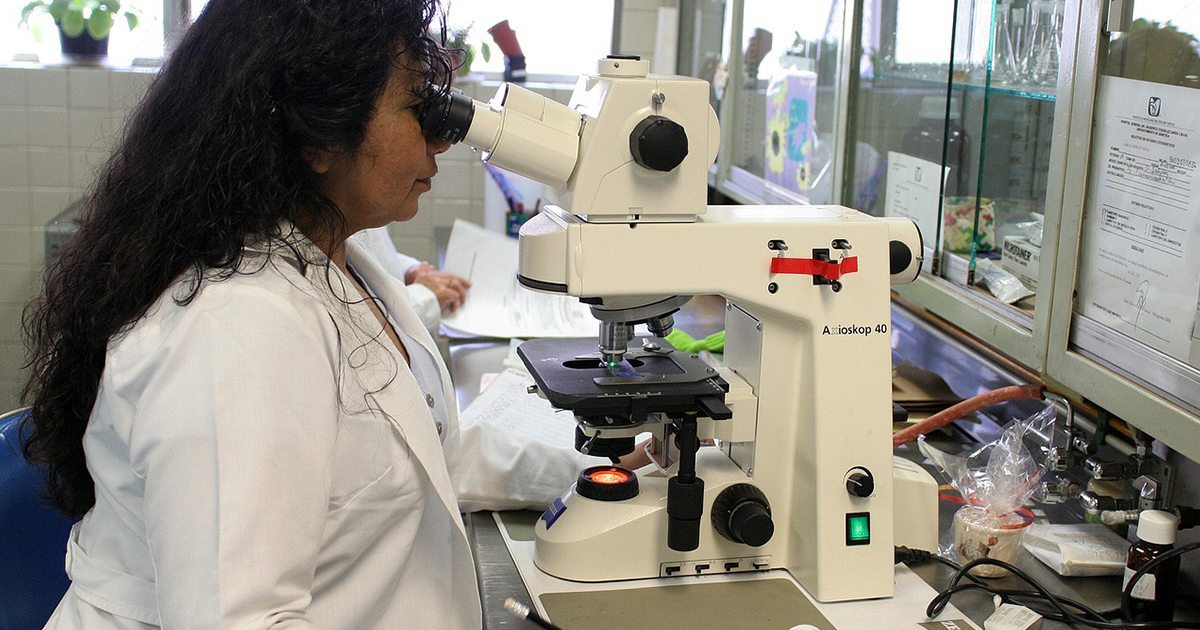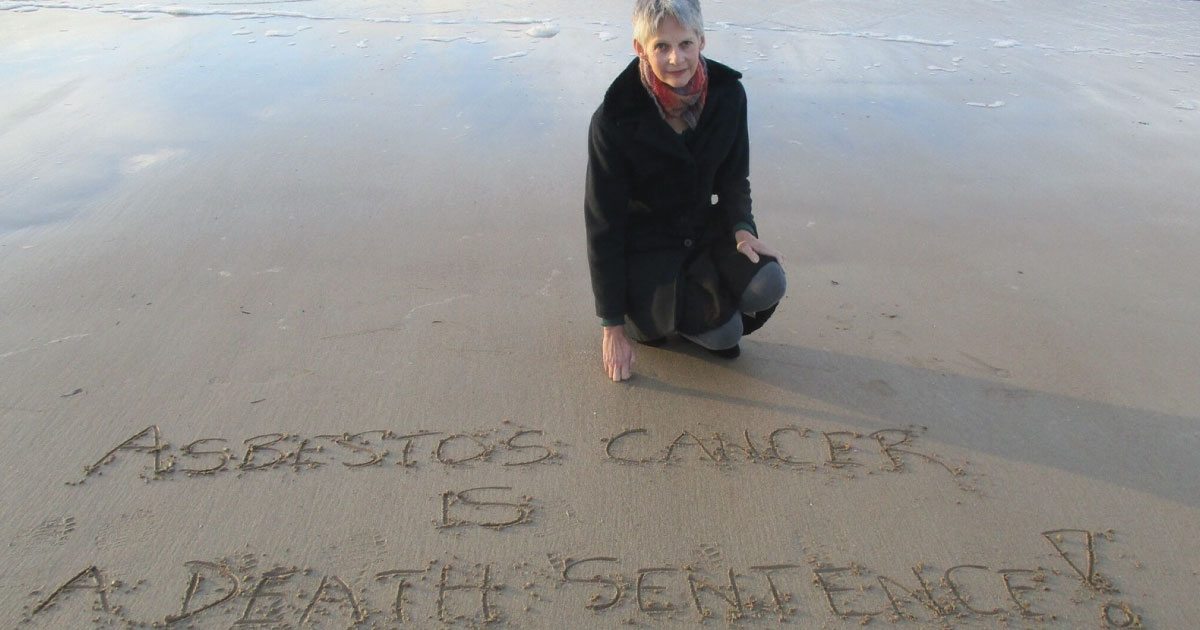Category: Mesothelioma

Specialized Blood Vessels May Lead to Novel Mesothelioma Therapy
Last week, Mesothelioma Help reported that some, but not all, mesothelioma patients benefit from immunotherapy. Researchers found that cancer patients with a particular genetic mutation may not realize any benefits from immunotherapy treatments. Now, researchers report that by creating a combination treatment inhibiting the growth of new blood vessels while at the same time boosting the immune system, they can improve immunotherapy results.
According to researchers from VIB and KU Leuven, of Belgium, increased blood supply and decreased immune activity are critical components for cancer cells to multiply. Many researchers have focused on inhibiting that growth by focusing on one of those components. However, building on research that inhibiting blood vessel formation or using PD-L1 inhibitors for immunotherapy, when used individually, are only beneficial in a “minority of treated patients,” the research team, along with researchers from University of California and the Swiss Institute for Experimental Cancer Research, looked at combining the two therapies.
Using mouse models, when an anti-angiogenic therapy, designed to stop blood vessel formation, was combined with an immune boosting treatment the researchers were met with a “counterintuitive outcome.” The combination resulted in the formation of “specialized vessels that deliver cancer-fighting immune cells to the tumor,” helping to quash the cancer.
“It was interesting to observe that this combination of immune system-activating and anti-angiogenic antibodies causes a positive feedback loop,” said Prof. Dr. Gabriele Bergers, in an April 12 press release from VIB-KU Leuven. “The result is the growth of specific blood vessels that deliver cancer-fighting immune cells into the tumor.”
Mesothelioma is a signature cancer of asbestos, affecting the lining of the lungs or abdomen. The cancer is extremely aggressive, and the cancer cells continue to grow and multiply as additional blood vessels develop bringing more food and oxygen to them and the patient’s immune system is compromised.
Avastin, sometimes used in mesothelioma treatment, was the first U.S. Food and Drug Administration – approved biological therapy designed to inhibit blood vessel formation. In addition, the immunotherapy drug Keytruda, a PD-L1 inhibitor, has shown some success in enhancing the immune system to fight off cancer cells in mesothelioma patients.
Continued research in the combination of these two therapies could bring additional therapies to mesothelioma patients and other cancer patients fighting aggressive growth and limited treatments. Nearly 3,000 Americans are diagnosed with mesothelioma each year. There is no cure for the terminal cancer.
“Understanding the underlying mechanisms of the process will contribute to the overarching goal of developing new therapeutic approaches to boosting the immune system in tumors,” said Dr. Bergers.
See the April 12 issue of Science Translational Medicine for the full study.

Drug Effective in Fight Against MS May Prove Effective Against Mesothelioma
In the quest to find a more effective treatment for mesothelioma sufferers, researchers sometimes turn to medicines that are successful in treating other diseases. In February, MesotheliomaHelp reported on the use of a pinworm drug in the fight against cancer. Now, researchers report that a drug used to treat multiple sclerosis could be effective against mesothelioma.
Researchers from the University of Hawaii Cancer Center, joined by colleagues from University of Ferrara, Italy, and New York University Langone Medical Center, looked at the immunosuppressant drug fingolimod, or FTY720, approved for multiple sclerosis treatment, due to its anti-tumor activity reported in various cancers. The drug had not previously been considered for use in mesothelioma care.
Mesothelioma is a terminal cancer caused by the inhalation or ingestion of airborne asbestos fibers. The asbestos fibers lodge deep in the tissue surrounding the lungs, in the case of pleural mesothelioma, causing inflammation that festers for years. Chronic, persistent inflammation is known to lead to cancer, and according to a 2014 press release from UH, the inflammation “can cause mutations in cells even after 30-50 years of dormancy.”
The study, using mouse models to evaluate anti-tumor efficacy and toxicity profile of FTY720 in vivo, showed the drug could induce apoptosis (cell death) and reduce tumor growth in mesothelioma without causing toxicity.
“FTY720 is a potentially promising therapeutic agent for MM [malignant mesothelioma treatment],” concluded the researchers.
Research Costs Supported by State Grant
Mesothelioma research requires significant amounts of time and money, and without adequate funding projects may not be completed. The researchers noted that “the development of new therapeutic agents for rare cancers, such as MM [malignant mesothelioma], is hampered by the increasing costs of research and drug development from the laboratory to the patient’s bed.”
They added that using a drug repurposing approach, like this research aimed at using an MS drug to treat mesothelioma, “is a strategy that drastically reduces time and costs to bring a new drug to the market.”
The UH Cancer Center announced a $5 million grant from Hawaii’s governor to aid in the continued research to fight cancer in FY 2018 and 2019. The mesothelioma community is hopeful this money helps lead to a new, effective treatment for mesothelioma patients.
“As governor, I am committed to providing additional resources to combat cancer and engage in cancer research in Hawai’i,” Governor David Ige in the December 14 press release. “With our rapid advancements in technology and medical research, it’s time to find a cure once and for all.”
See the full study from UH researchers in the March 15 issue of the Journal of Translational Medicine.
https://www.ncbi.nlm.nih.gov/pmc/articles/PMC5353897/
Sources
- UH Cancer Center
http://www.uhcancercenter.org/about-us/news-room/news-releases/465 - 2014 press release from UH
http://www.uhcancercenter.org/component/content/article/18-news-releases/344-cancer-from-asbestos-caused-by-more-than-one-cell-mutation

People Around the World Mourn Passing of Mesothelioma Warrior and Advocate Lou Williams
The mesothelioma community is deeply saddened by the passing of mesothelioma warrior and the community’s leading advocate, Louise “Lou” Williams of Australia. On April 18, Lou lost her nearly 15-year battle to the disease that also stole her father from her over three decades ago.
While fighting for her life, after being diagnosed with pleural mesothelioma in 2003 and peritoneal mesothelioma in 2009, Lou began a worldwide campaign to get asbestos banned from every country. Throughout her advocacy years, Lou joined efforts with Asbestos Diseases of Victoria, Asbestos Diseases Foundation of Australia, Global Ban Asbestos Network, the Asbestos Disease Awareness Organization and an untold number of patients and families to keep others from suffering the way she and her family did.
Lou did not hesitate to use petitions as a way to bring about change. She began a petition to the State of Victoria, Australia to encourage the state to join the National Asbestos Strategic Plan, and a petition to get the immunotherapy drug Keytruda added to the Pharmaceutical Benefits Scheme to allow Australian oncologists to offer the treatment to mesothelioma patients free of charge or for a negligible amount.
Expert Insight
Linda Reinstein, ADAO
“Lou will be missed beyond measure, but never forgotten.”
In March 2015, when Lou thought she was on her death bed, she was given a new lease on life when she began taking Keytruda. Thanks to the drug, Lou told MesotheliomaHelp at the time, “Keytruda has given me back my life, as my body was literally shutting down.”
True to Lou’s mantra, “I will never, never, never give up!” she kept up her advocacy efforts even while lying in bed by sending a video of herself wishing the ADAO “all the best” as it kicked off its 13th annual International Asbestos Awareness and Prevention Conference in early April.
Linda Reinstein, ADAO Co-Founder, President and CEO, who probably knew Lou best, wrote on Facebook: “Her legacy to raise awareness, embrace unity, support efforts to find a cure, and to ban asbestos will live on in each of us.”
Mavis Nye of England, who is an eight-year mesothelioma survivor and had a special bond with Lou as the two of them joined efforts to bring Keytruda to mesothelioma patients, said, “It was an awful shock when I woke up yesterday, I just burst into tears. Lou your spirit will always be with us.”
“Heartbroken to hear of the passing of Lou Williams, an incredible woman and meso warrior who worked tirelessly to help others,” wrote Jennifer Gelsick, who lost her father to the disease in 2013. “You are an inspiration to all who work to end this disease, and my prayers are with you and your family.”
Lou leaves behind her husband, Keith, two daughters and four stepchildren, 13 grandchildren and great-grandchildren.
All of us at MesotheliomaHelp send our deepest condolences to Keith and to all of Lou’s family and friends during this very difficult time.
Read more about Lou’s life and her advocacy on MesotheliomaHelp.
Read Lou’s story on her blog at “Asbestos – Living with Mesothelioma in Australia – Louise (Lou) Williams.”
Sources:
- petition to the State of Victoria
http://www.thepetitionsite.com/376/207/908/petition-the-state-of-victoria-australia-to-join-the-national-asbestos-strategic-plan - Linda Reinstein, ADAO Co-Founder, President and CEO
http://www.asbestosdiseaseawareness.org/archives/21537

Mesothelioma Patients Hopeful After Anti-Cancer Drug Alectinib Was “Superior” to Crizotinib for Some Lung Cancer Patients
In Dec. 2015 the U.S. Food and Drug Administration approved Alecensa (alectinib) for the treatment of anaplastic lymphoma kinase (ALK)-positive non-small cell lung cancer in patients who have progressed on or are intolerant to Xalkori (crizotinib). Now, results from a global phase III clinical trial show alectinib, when used as a first-line treatment, “significantly reduced the risk of disease worsening or death compared to crizotinib in ALK-positive NSCLC patients.”
According to an April 10 press release from Roche, the maker of Alecensa, the ALEX study led the researchers to conclude, “Alecensa was superior as an initial treatment compared to crizotinib in this type [ALK-positive] of lung cancer.” In addition, patients did not experience any unexpected adverse side effects.
“Our goal is to transform the standard of care and we are excited to share these results with the lung cancer community”, said Sandra Horning, MD, Chief Medical Officer and Head of Global Product Development. “As part of its Breakthrough Therapy Designation, we hope to bring Alecensa as an initial treatment for people with ALK-positive NSCLC as soon as possible and will discuss these data with global health authorities.”
Pfizer, the maker of Xalkori, reports that about three to five percent of people with NSCLC may test positive for ALK. There is a possibility that the marker is also present in certain pleural mesothelioma cases making Alecensa a treatment option for the disease. Lung cancer and pleural mesothelioma patients often undergo the same treatment protocol.
Alecensa is an oral medication that blocks the activity of the ALK protein, which may prevent cancer cells from growing and spreading. In the results, the team reports the “results showed that people treated with Alecensa lived significantly longer without their disease progressing compared to crizotinib when given as initial (first-line) treatment.”
Pleural mesothelioma is a rare form of lung cancer that invades the outer lining of the lungs called the mesothelium. The only known cause of mesothelioma is through inhalation or ingestion of airborne asbestos fibers.
Alecensa, with its target of patients with a specific biomarker, continues the progress towards personalized care that could benefit the nearly 3,000 patients in the U.S. diagnosed with mesothelioma each year. Medical care targeted to a patient’s unique characteristics and genetic makeup optimizes the potential for success of the treatment and offers treatment options that may not otherwise have been considered.
If you believe Alecensa could help you in your mesothelioma care, talk to your doctor, or visit Alecensa.com.
To find out more about the ALEX clinical trial see ClinicalTrials.gov.
https://clinicaltrials.gov/ct2/results?term=%22malignant+mesothelioma%22&recr=Open&pg=1
Sources
- (April 10 press release from) Roche
http://www.roche.com/media/store/releases/med-cor-2016-09-01.htm

Some Immune Cells Thought to Help Fight Mesothelioma and Other Cancers May Actually Aid Metastasis
The National Cancer Society reports that 90 percent of all cancer deaths occur when the cancer cells migrate beyond the primary cancer site to distant organs. Stopping tumor growth and preventing metastasis is especially critical for increasing survival in mesothelioma and other cancer patients. Now, researchers believe they have found yet another way cancer cells spread throughout a patient’s body.
According to an April 6 press release from the Georgia Cancer Center at Augusta University (http://jagwire.augusta.edu/archives/43129), a team of researchers report that while cytokines are primarily useful in helping fight cancer, they found that they can also lead to cancer metastasis. These “immature” immune cells may be hijacked by cancer cells to help the cancer spread beyond its primary site.
“There is a very intricate balance in the immune system that is usually anti-tumorigenic, meaning it eliminates tumors, but in some cases, if this balance is altered, these cells may actually help tumors grow and develop into full-blown metastatic disease,” said Dr. Hasan Korkaya, molecular and cancer biologist at the Georgia Cancer Center and Medical College of Georgia at Augusta University.
Cancer spreads through the blood stream, but when cancer cells break free they have to get past the immune system where they are attacked and broken down. According to the researchers, the cancer cells use myeloid-derived suppressive cells (MDSCs) that come from the bone marrow, like a support system to dodge the immune system and metastasize.
The researchers note that MDSCs have been shown to suppress the immune system, however, their discovery that they also enable the spread of cancer is surprising. MDSCs seem to be directed by the cytokines secreted by the tumor. Cytokines, typically secreted by the immune system, can influence other cell types. The researchers found that tumors can also secrete cytokines that then signal the immature MDSCs to support the cancer growth.
“They are being schooled toward facilitating tumor cell growth and metastasis,” Korkaya said. The tumors continue to control the cytokines, according to the researchers, to keep the MDSCs from maturing, thus they can keep using them to grow the cancer.
In a recent study one researcher said, “Metastasis is currently incurable and remains one of the key targets of cancer research.” The physicians and patients in the mesothelioma community hope the researchers at Augusta University continue this line of research to help bring a solution to halting cancer’s uncontrolled growth.
Mesothelioma is diagnosed in close to 3,000 Americans each year. There is no cure for the asbestos-caused cancer.
To find out more, read the full study in the Feb. 20 issue of Nature Communications. http://www.nature.com/ncomms/2016/160524/ncomms11734/full/ncomms11734.html

Free Mesothelioma Patient & Treatment Guide
We’d like to offer you our in-depth guide, “A Patient’s Guide to Mesothelioma,” absolutely free of charge.
It contains a wealth of information and resources to help you better understand the condition, choose (and afford) appropriate treatment, and exercise your legal right to compensation.
Download Now